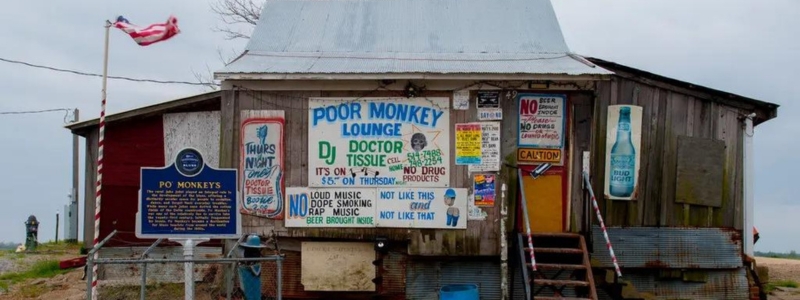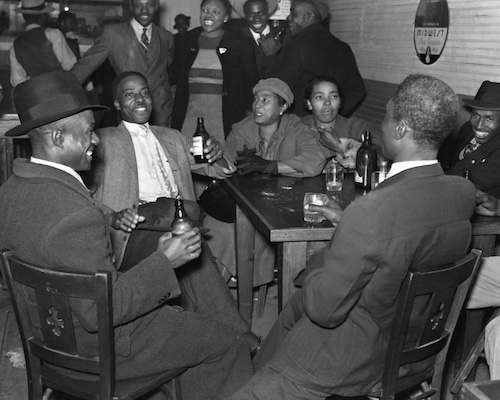Down at the Juke

“From the road, juke joints seem to be nothing more than woozy broken-down shacks, apparitions from a not-so-proud past defined by Jim Crow laws. Until the late fifties, if you were [B]lack and lived in the rural South, they were practically the only public places to meet and greet or just while away idle hours…” – Joe Nick Patoski
In Eugene Lee’s East Texas Hot Links, place is just as important as people. The Top o’ the Hill Café in which this production is set is just as much a character as the individuals who frequent the establishment; all are vibrant, specific, and relatable. Paying homage to juke joints of the American South and the sense of community found therein, Top o’ the Hill is crucial to understanding East Texas Hot Links, the play, and East Texas, more generally.

Juke joints are informal bars (often shacks or structures made from existing buildings, tin, plywood, or other easily accessible materials) where patrons can unwind, relax, dance, drink, gamble, and connect. Juke joints were often found in rural, Black, and Southern communities; typically located off railroad tracks or backwoods roads; and originated in the time of slavery and sharecropping. They arose as a means for Black Southern communities to socialize and revel in each other’s company outside of the white gaze, forced labor, oppressive systems, or law enforcement. For this reason, juke joints were often kept secret to protect both the institutions and their regulars, and patrons were frequently locals who already knew each other. Full of energy, their decor was often colorful— albeit a bit haphazard (Christmas lights, paintings, advertisements, and party decorations were regular staples). They felt like home.
Juke joints were a place of joy, escapism, and freedom, just as the Top o’ the Hill Café is in East Texas Hot Links. The Top o’ the Hill Café is run by the graceful and indomitable Charlesetta Simpkins and, in her establishment, Lee’s characters unwind and trade friendly barbs. There’s an ease to their conversations. These people are family and the Top o’ the Hill Café is inextricable from the fabric of their lives.
By containing all of the action in one room, Eugene Lee keeps the focus squarely on the people of East Texas and their relational dynamics, making this play a riveting character study. Beyond that, it’s also a commemoration of Black life, community, joy, resilience, and history. Surrounded by colorful artwork and old advertisements with a jukebox playing in the background, Top o’ the Hill Café is a perfect setting for this homage.